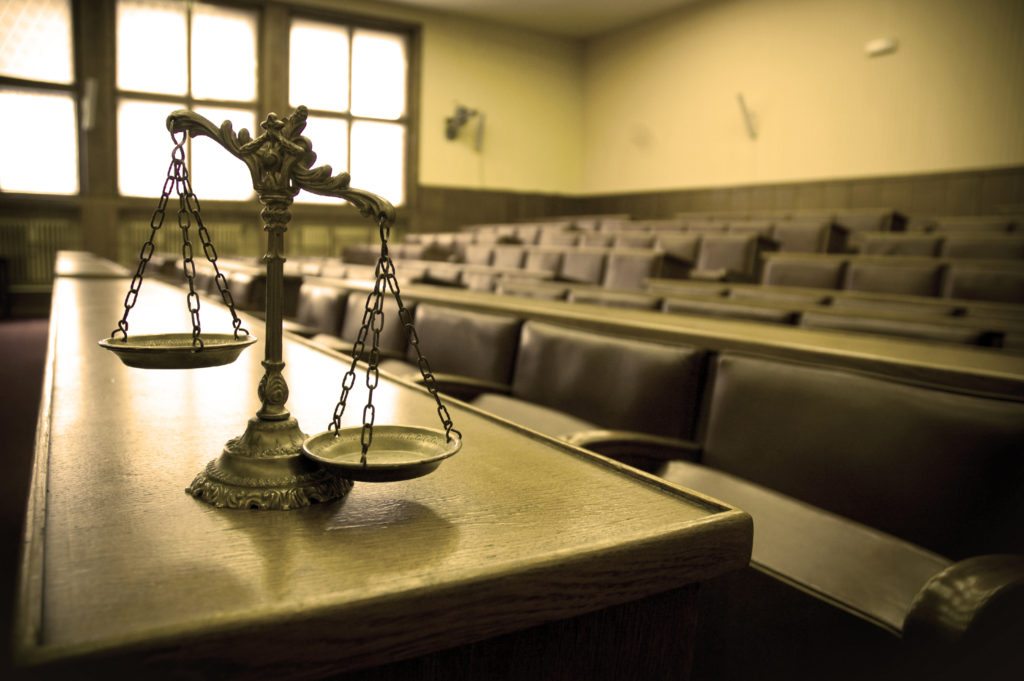Movies and TV shows tend to focus on the trial stage of the court process, but in reality, many California criminal cases never make it to trial. There are actually several hearings which precede trial, with one of the earliest and most critical being the arraignment. In this article, our Ventura County DUI lawyers explain the purpose of an arraignment, what to expect from an arraignment, and what happens after you are arraigned.
What is the Purpose of a Criminal Arraignment Hearing?
Whether it is related to an alleged misdemeanor or felony, the first court appearance is the beginning of the criminal process against you. The district attorney has filed charges, and now you are before the court. However, unlike a trial, the purpose of an arraignment is not to determine the defendant’s guilt or innocence. Instead, arraignment serves two important purposes: providing the defendant with legal information, and entering a plea.
First, the defendant receives legal information. The judge notifies the defendant of their charges, their Constitutional rights, and their right to an attorney. The charging document states each charge the district attorney has filed, including any special allegations such as:
- Prior strikes
- Prior convictions
- Whether or not the district attorney is adding a special allegation
For example, the district attorney may be charging you with robbery and add a special allegation of the use of a firearm during the commission of the crime. This special allegation could increase your sentence, whether in county jail or prison.
Remember, the police arrest you, but the district attorney charges you. For example, the police may arrest you for felony domestic violence, but the district attorney has discretion to charge you with a misdemeanor or a felony depending on the facts of the case. At this first stage, you and your attorney will know whether the district attorney has filed felonies or misdemeanors. The district attorney usually provides you with a copy of the complaint.
If you are in custody, you have to be arraigned within 48 hours of your arrest, not including weekends and holidays. If you are released from custody prior to your first court appearance, you will be arraigned at the court date provided to you when you are released from custody. This could be weeks or months from the date of the original arrest.
Defendants are arraigned regardless of whether they have been charged with a felony or a misdemeanor. At a felony arraignment, your presence is almost always required, absent some type of agreement between your attorney, the district attorney, and the court. If you were charged with a misdemeanor, your attorney may generally attend the hearing in your place, unless you were charged with certain crimes.
At your arraignment, you have a right to:
- Have every charge read to you
- Have an attorney present
- A speedy trial
- Be tried by a jury
In order for judicial efficiency, your attorney usually waives any formal reading of charges against you.
Entering a plea is another important part of the arraignment. At the felony arraignment, your attorney has the option to continue the felony arraignment or enter not guilty pleas and deny any special allegations. This is done in order for you and your attorney to have the opportunity to review all police reports, review witness statements, raise any defenses you might have, and so forth. Absent some extenuating circumstances, your attorney will not enter a guilty plea at this stage.
Most people are already familiar with the idea of pleading guilty or not guilty. There is also a third plea of “no contest” (nolo contendere), which is similar to a guilty plea in that the defendant does not deny the charges. However, unlike pleading guilty, pleading no contest usually protects the defendant from civil lawsuits – for instance, a personal injury lawsuit filed in civil court by the victim of an assault in Ventura County.
What Happens After a Defendant is Arraigned in California?
If not guilty pleas are entered, the court will set the next court date. In Ventura, the next court date is usually an Early Disposition Conference (EDC). Each county has a different name for the next stage. This is where your attorney, the district attorney and the court review your case and discuss any possible resolution to the case. However, your attorney may, as a tactical move, waive the EDC and set your case for a preliminary hearing in order to put pressure on the district attorney to be ready. This is determined on a case-by-case basis depending on the facts of your case.
If you an agreement cannot be reached at the EDC, your case will be set for a preliminary hearing. A preliminary hearing is an evidentiary hearing in order to determine if there is enough evidence to move forward. It is important to remember the burden of proof at a preliminary hearing is very low. It is not like a jury trial, where the district attorney has to prove you committed the crime beyond a reasonable doubt. Essentially, the court will determine if (1) a crime was committed, and (2) you likely committed that crime.
Experienced defense lawyers in Ventura will use this opportunity to test the strength of the district attorney’s case. This is usually done through cross examination of police and civilian witnesses. Winning at this stage is very difficult. If the court holds you to answer – which means there is enough evidence to move forward – you will be arraigned on the felony information.
The felony information arraignment is very similar to the arraignment on the complaint. However, the district attorney may amend the felony information by adding or dismissing some of the charges, based on what was revealed during the preliminary hearing.
When you are arraigned on the felony information, your attorney again will enter not guilty pleas, deny any special allegations, and set your case for pre-trial or jury trial. This is next step where you may find yourself defending your case in front of jury of your peers.
The following may also take place after arraignment, but prior to trial:
- The defendant may change their original plea.
- The defense and prosecution may file various legal documents called motions, which are formal requests to the judge. For example, your Ventura County drug possession lawyer may file a motion to have the case dismissed, depending on the circumstances.
- The discovery process, which is when the prosecution and defense exchange legal information pertaining to the case.
Ventura Criminal Defense Lawyers Handling Felony and Misdemeanor Cases
If you are represented by the Ventura County theft defense attorneys of Bamieh & De Smeth, our legal team will take the time to sit down with you and thoroughly prepare you for your arraignment. We know it can be extremely stressful and frightening to face criminal charges, but rest assured you will not be doing it alone. With more than 20 years of experience representing defendants charged with felonies and misdemeanors, our Oxnard defense lawyers are absolutely committed to providing legal and emotional support throughout all stages of the court process.
Call the Law Offices of Bamieh & De Smeth, PLC right away at (805) 643-5555 to set up a free, completely confidential consultation with a Ventura criminal defense attorney regarding your criminal matter. Your information will be kept confidential. We handle a wide range of serious criminal charges, including but not limited to intoxicated driving, drug crimes, sex crimes, theft, violent crimes, and white collar crimes.

